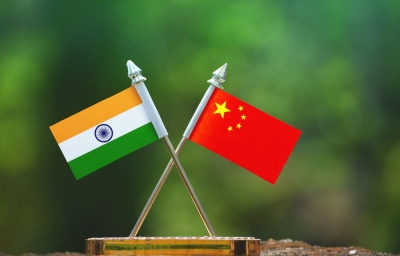SUNDAY, MAY 11, 2025
- Home
- Military postures elevate risk of armed confrontation between India, China - US
Military postures elevate risk of armed confrontation between India, China - US
Published on Mar 9, 2023
By IANS
Share

A US intelligence report has warned that "expanded military postures by both India and China along the disputed border" elevates the risk of armed confrontation between the two nuclear-powered neighbours.
The report said that while India and China have engaged in bilateral border talks and resolved border points, relations will remain strained in the wake of the countries' lethal clash in 2020, the most serious in decades.
"The expanded military postures by both India and China along the disputed border elevate the risk of armed confrontation between two nuclear powers that might involve direct threats to US persons and interests, and calls for US intervention.
"Previous standoffs have demonstrated that persistent low-level friction on the Line of Actual Control (LAC) has the potential to escalate swiftly," it warned.
On India and Pakistan, the intelligence report said that the violent unrest in Kashmir or a militant attack in India could be potential flashpoints between the two nations.
"Crises between India and Pakistan are of particular concern because of the risk of an escalatory cycle between two nuclear-armed states. New Delhi and Islamabad probably are inclined to reinforce the current calm in their relationship following both sides' renewal of a ceasefire along the Line of Control in early 2021.
"However, Pakistan has a long history of supporting anti-India militant groups, and under the leadership of Prime Minister Narendra Modi, India is more likely than in the past to respond with military force to perceived or real Pakistani provocations," it added.

The report went on to say that the ongoing war in Ukraine has demonstrated how inter-state conflict affects not only the parties directly involved, but can have broader cascading security, economic, and humanitarian implications on a regional, and even global, scale.
"These are a few of the potential conflicts between states that could spillover with repercussions that may require immediate US attention," the report said.

